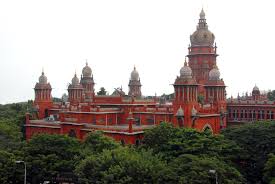Chennai Court Says Periyar’s Ideology Has Benefited the Country While Convicting BJP Leader H. Raja for His Tweet About Periyar.

A Chennai Court has found senior Bharatiya Janata Party (BJP) leader H. Raja guilty under Sections 153 (provocation to cause a riot) and 504 (intentional insult to provoke a breach of peace) of the Indian Penal Code (IPC) due to a defamatory and provocative social media post about Dravidian reformer Thanthai Periyar. The Court has sentenced Raja to six months in prison and imposed a fine. Special Judge G Jayavel noted, “Some people may accept an ideology while others may not. Opposition is a natural part of life. Not everyone will agree with every ideology. What matters is whether an ideology benefits society or at least helps some people. It is clear that Thanthai Periyar’s ideology has contributed positively to this country and its citizens. However, there may be aspects of this ideology that some people do not accept, which is a normal human reaction.”
Special Public Prosecutor P. Washington Dhanasekaran represented the State, while Senior Advocate N. Anantha Padmanabhan and Advocate M. Ramamoorthy defended H. Raja. The court stated that ideologies should be challenged with other ideologies, not through force or provocation. It condemned the social media message as highly provocative, capable of disturbing public peace and potentially leading to violence. Such messages can incite followers and are unacceptable in a society that follows the rule of law. The court noted that no reasonable person would view the message as a sensible response to Thanthai Periyar’s ideology, indicating the poster’s intentions were clear from the message itself.
The court determined that the tweet was inflammatory, intended to provoke Periyar’s followers, and could disrupt public order. The following points were highlighted:
- The message was extremely provocative and could incite violence.
- The accused did not deny owning the Twitter account or show that someone else posted the message.
- The accused failed to take any corrective measures, like filing a complaint or distancing himself from the post, even though it was widely shared.
The Court stated, “Just because specialized investigations or scientific proof are not available, it does not mean a person can post harmful messages on social media without facing legal repercussions. This kind of behavior would threaten social order and public peace.” It dismissed the defendant’s claims, noting that testimony from prosecution witnesses, along with the identification of the defamatory post, clearly showed it came from his Twitter account. The Court found the defendant guilty under Sections 153 and 504 of the IPC, determining that his actions directly caused public unrest and vandalism. It remarked, “Ideologies should be challenged by other ideologies, not through force or incitement. The accused’s message went too far and disrupted public harmony.” This conviction highlights the judiciary’s firm stance against hate speech and the misuse of social media to incite violence or disturb public order.
The defendant was accused of posting a controversial tweet that compared the removal of Lenin’s statue in Tripura to calls for the destruction of Periyar’s statues in Tamil Nadu. He labeled Periyar a “caste fanatic” and urged for his statues to be taken down. This tweet sparked significant tensions and led to the vandalism of a Periyar statue in Tirupathur, Vellore district. The defendant denied making the post, claiming it was politically motivated and a retaliation for his opposition to the state government. He argued that the message was not hate speech but rather a personal opinion. In a separate ruling on the same date, the Court also convicted and sentenced Raja to six months in prison under Sections 153, 504, and 509 of the IPC for a derogatory tweet about the late M. Karunanidhi and his daughter, DMK leader K. Kanimozhi. The Court stated that the social media post was “highly provocative” and caused “tension among the followers” of the late Karunanidhi.
Cause Title: The State v. Mr. H. Raja [C.C.No.5 of 2024]









